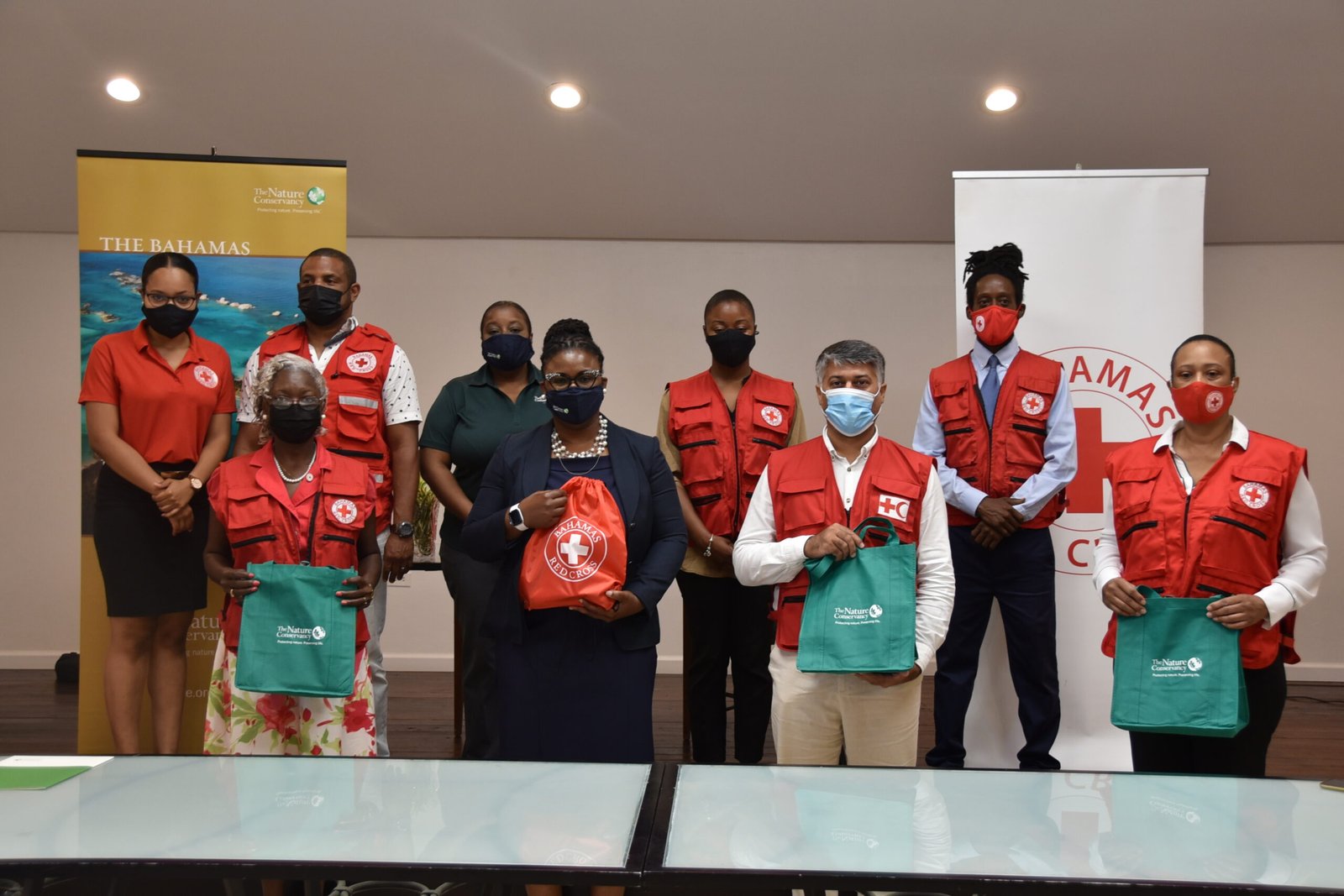NASSAU, BAHAMAS — On Earth Day, celebrated on April 22, 2021, the Bahamas Red Cross Society (BRCS) and the Nature Conservancy (TNC) launched its official partnership towards increasing climate resilience in communities across the archipelago.
The launch featured the signing of a memorandum of understanding (MOU) to solidify the beginning of the Resilient Islands project in The Bahamas, a collaborative effort between the two organizations, along with other national and community-based stakeholders. Through this initiative, local communities will increase their resilience to climate change impacts through raised awareness, protecting nature, advocating for strengthened national policy, engaging youth and establishing strategic partnerships.
Shanique Albury-Smith, program director for the Northern Caribbean Region at TNC, stated: “Island communities must work together to better prepare for natural disasters and to find ways to minimize their impact.”
The project is in alignment with the BRCS’ new 10-year strategy, which aims to expand its traditional humanitarian programs to include reducing impacts and accelerating recovery from climate-related disasters such as hurricanes on families, livelihoods and community infrastructure.
BRCS President Terez Curry, in her remarks, stated: “This partnership will seek to build capacity of staff and volunteers to conduct assessments and utilize tools to recognize needs in communities. After assessments, community profiles will be built and areas of intervention will be identified and implemented.”
As BRCS continues to assist residents on Grand Bahama and Abaco in their post-Hurricane Dorian recovery, the Resilient Islands project will work with communities in the medium-to-long term on designing community-based approaches to disaster risk reduction and resilience, which integrate the protection and restoration of natural ecosystems.
The Resilient Islands project is already underway in three Caribbean countries through an existing partnership between the International Federation of Red Cross and Red Crescent Societies (IFRC) and TNC, funded by the German Federal Ministry for the Environment, Nature Conservation and Nuclear Safety. The Bahamas program represents a scaling up of efforts and lessons learned through this regional collaboration and will be funded independently.
For more information or to volunteer to be part of the Bahamas Red Cross’ climate initiatives, visit its website at https://bahamasredcross.org or its social media platforms.






